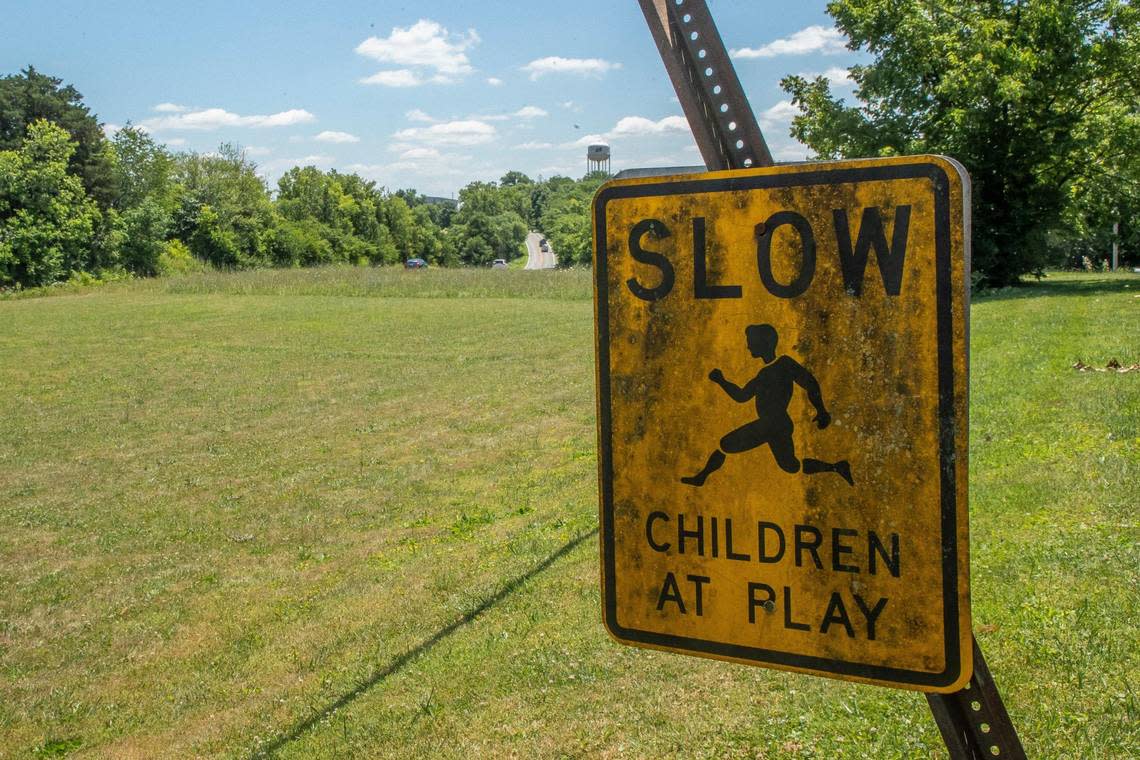Whiskey fungus suit: Court orders county to halt Jack Daniel’s barrel warehouse
A Tennessee court has issued an order that will halt construction of a Jack Daniel’s whiskey barrel warehouse, at least temporarily.
A Lincoln County, Tenn. woman sued her local zoning office, arguing that whiskey fungus has harmed her nearby property, which sits next to six completed warehouses for Jack Daniel’s Tennessee Whiskey, which is owned by Louisville-based Brown-Forman. According to published reports, the company is planning to build 14 more warehouses on the site.
Brown-Forman was not directly involved in this legal action. But distilleries, including several in Kentucky, have been facing growing friction from local residents who are alarmed by whiskey fungus and other environmental risks posed by mammoth whiskey warehouses.
Residents in at least three Kentucky counties — Henry, Franklin and Anderson — fought expansions by bourbon makers that homeowners claim will negatively impact property values. Baudoinia compniacensis, the fungus that feeds off the “angel’s share,” as the whiskey vapor is called, grows on virtually any surface, from houses to street signs to trees.
The unwelcome ingredient in Kentucky’s $9 billion bourbon industry? Whiskey fungus
Tennessee lawsuit over lack of zoning enforcement
Lincoln County Chancellor J.B. Cox on Feb. 24 issued an order saying that Christi Long had proven that her property “has been injured by the inactions and recent actions of Lincoln County since 2021 in how it has chosen to enforce its Zoning Ordinance.”
Cox said that the court “has little choice but to issue a writ compelling Lincoln County, through its office of Zoning and Planning to rescind the building permit for the remaining structure under construction.” He also said the county must issue a stop work order until an amended site plan is submitted.
What does Tennessee whiskey fungus suit mean for Brown-Forman?
Brown-Forman spokeswoman Elizabeth Conway said late Wednesday in an email: “We respect the Chancellor’s ruling and look forward to working with Lincoln County on updated permits. The Jack Daniel Distillery will continue to comply with regulations and industry standards regarding the design, construction, and permitting of our barrelhouses in Lincoln Co.”
Jack Daniel’s is the publicly traded company’s largest brand, with several lucrative offshoots, and it’s the biggest selling American whiskey in the world and growing.
Lincoln County Mayor Bill Newman told the judge that he had “promised full cooperation” with the spirits maker and that while he “was recruiting Brown-Forman to come to Lincoln County with its barrel warehouses that he promised that zoning would be waived if Brown-Forman came to Lincoln County.”
The previous plan approved only two barrel warehouses and none on the land adjacent to the property owned in part by Long, according to the filing. A Lincoln County zoning official testified that Newman ordered her not to bother with permits “as he had an agreement with Brown-Forman.”
Warehouse neighbors want help fighting whiskey fungus
Christi Long owns a wedding and party venue which she testified had been impacted by whiskey fungus which feeds on the ethanol evaporating from aging whiskey barrels. It causes black mold-like growth on surfaces that is difficult to remove.
In 2018, Lincoln County issued approval for a site plan for two barrel warehouses, according to the filing, but never issued building permits. Four more were completed and a fifth is under construction.
On Feb. 13, 2023, zoning officials belatedly issued a building permit for the building already under construction. An inspector testified that the county is working with Brown-Forman to get access for inspections and issue certificates of occupancy for the full warehouses.
Long, who bought the wedding venue with a partner in 2021, has said that she and her husband, Patrick Long, would like Jack Daniel’s to install ventilation systems on its warehouses that remove the ethanol to stop the whiskey fungus.
Kentucky residents have argued unsuccessfully for similar ventilation systems to be installed on bourbon barrel warehouses. Homeowners filed lawsuits against major distillers, including Brown-Forman, in 2012 to try to force action but eventually the cases were dismissed.


Jason Holleman, attorney for Long, said Wednesday that his clients don’t oppose approval for the additional Jack Daniel’s warehouses “but they have requests for conditions they would like to have a public hearing on. All we asked for is that Jack Daniel’s follow the typical process for approval.”
One condition, Holleman said, is they want the county to require a system to address the released alcohol vapor.
His clients plan to pursue regulatory action, he said. “Going forward we likely will have to address Brown-Forman.”
“What I think is interesting is in Middle Tennessee and Central Kentucky, if you go on a distillery tour, they proudly reference the angel’s share. But the angel’s share results in the devil’s fungus,” Holleman said. Distilleries and barrel warehouses used to be farther apart, in more rural areas, making whiskey fungus less of a factor.
“Now they are not. We have to find ways that they more peacefully co-exist,” Holleman said.
